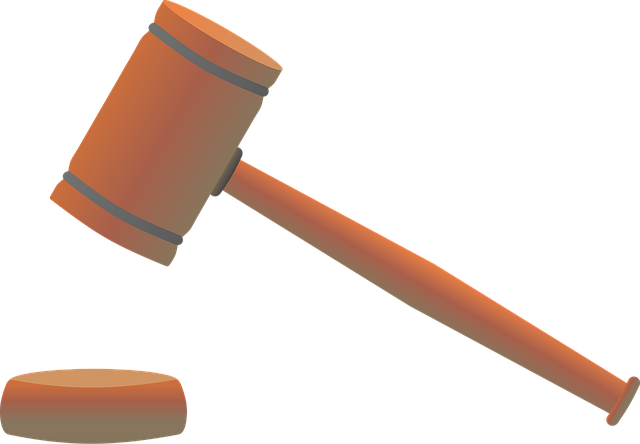Corporate Crime Investigations tackle intricate white-collar crimes, including defective product claims, through advanced analysis of financial records and internal communications. Skilled investigators ensure justice while mitigating impacts on organizations, emphasizing the crucial need for legal advice. This advice navigates complex legal landscapes, unravels corporate structures, and holds companies accountable under strict liability laws. Proactive risk assessments identify vulnerabilities, and specialized legal knowledge is vital for handling product liability cases, ensuring businesses protect their interests and deliver justice through appropriate defense strategies.
Corporate crime investigations are pivotal in ensuring ethical business practices and safeguarding consumers. This comprehensive overview delves into the intricate world of understanding, preventing, and litigating corporate crimes, with a specific focus on defective product claims. We explore the legal framework governing these claims, offering insights into rights and responsibilities. Furthermore, best practices for effective investigation strategies are highlighted, along with guidance on when to seek expert legal advice in cases involving defective products, ensuring businesses navigate these complex issues with clarity and efficacy.
- Understanding Corporate Crime Investigations: A Comprehensive Overview
- Legal Framework for Defective Product Claims: Rights and Responsibilities
- Strategies for Effective Corporate Crime Investigation: Best Practices
- Navigating Legal Advice: When to Seek Expert Guidance for Product Liability Cases
Understanding Corporate Crime Investigations: A Comprehensive Overview

Corporate Crime Investigations delve into complex and sensitive matters involving white-collar and economic crimes. These inquiries span all stages of the investigative and enforcement process, demanding meticulous attention to detail and a deep understanding of both legal and business landscapes. When organizations face allegations of defective product claims, for instance, seeking legal advice becomes paramount. Skilled investigators must navigate the intricate web of corporate structures, regulatory frameworks, and international laws to uncover truth and achieve extraordinary results.
The process involves thorough review of financial records, internal communications, and compliance protocols, often requiring sophisticated analytical tools and expert witness testimony. By employing comprehensive strategies that span from preliminary assessments to final enforcement actions, investigators ensure justice is served while mitigating potential reputational and financial impacts on the accused organizations.
Legal Framework for Defective Product Claims: Rights and Responsibilities

The legal framework for defective product claims is a complex landscape that involves both corporate and individual clients. When a product proves to be defective, leading to harm or loss, understanding one’s rights and responsibilities is crucial. Legal advice for defective product claims navigates this intricate web, ensuring that all parties involved are protected and held accountable as appropriate. In many jurisdictions, strict liability laws apply, which means manufacturers and distributors can be held liable for defects even without proving negligence.
This legal framework not only establishes the rights of victims to seek compensation but also delineates the responsibilities of companies in product safety. Avoiding indictment is a primary concern for corporate clients, leading them to implement stringent quality control measures and recall procedures as proactive steps. Similarly, individual clients benefit from this framework by having access to remedies that can compensate for injuries or property damage caused by defective products. The respective business practices and compliance with regulatory standards play a pivotal role in determining liability and the potential consequences for corporate and individual entities alike.
Strategies for Effective Corporate Crime Investigation: Best Practices

In the realm of corporate crime investigations, a strategic approach is essential to uncover and penalize wrongdoings effectively. One of the best practices involves a comprehensive risk assessment that identifies potential vulnerabilities across the organization. By analyzing internal controls, data security protocols, and compliance measures, investigators can pinpoint areas where criminal activities might flourish. This proactive method allows for the implementation of stronger defenses before incidents occur, utilizing legal advice for defective product claims as a tool to deter and mitigate risks.
Additionally, building an unprecedented track record of success relies on meticulous documentation and evidence collection. Investigators should maintain detailed records, ensuring admissibility in court. Utilizing advanced data analytics and forensic techniques can help uncover hidden patterns or anomalies indicative of fraudulent activities. Such methods, often employed across the country, have proven effective in exposing high-level corporate crimes, emphasizing the importance of a robust internal investigations strategy that complements general criminal defense practices.
Navigating Legal Advice: When to Seek Expert Guidance for Product Liability Cases

Navigating Legal Advice is a critical step for businesses dealing with product liability cases. Understanding when to seek expert guidance can significantly impact outcomes in white-collar defense strategies. Many companies, especially in their initial responses to such issues, tend to handle these matters in-house or through general counsel. However, the complexity of defective product claims demands specialized knowledge and experience. Engaging legal professionals with expertise in product liability and respective business sectors is pivotal for several reasons.
These experts can provide invaluable insights into the legal framework governing product safety standards and regulations. They help businesses understand their obligations to consumers and the potential consequences of non-compliance, including financial penalties and reputational damage. Furthermore, they assist in gathering and preserving evidence, interviewing witnesses, and negotiating settlements or strategic defense plans. Seeking guidance from these specialists early on ensures that companies take proactive measures, protect their interests, and deliver justice for affected clients.
Corporate crime investigations are complex and demand a thorough understanding of both legal frameworks and best investigative practices. As discussed, the legal landscape surrounding defective product claims is intricate, with rights and responsibilities clearly defined. When investigating corporate crimes, seeking expert guidance on legal advice for defective product claims can be pivotal in ensuring compliance, protecting interests, and achieving justice. By employing strategic approaches and staying informed about legal updates, organizations can effectively navigate these challenges and foster a culture of integrity.






